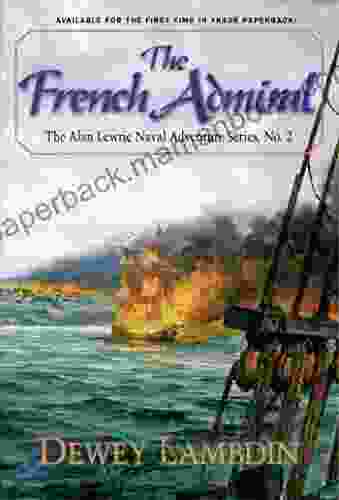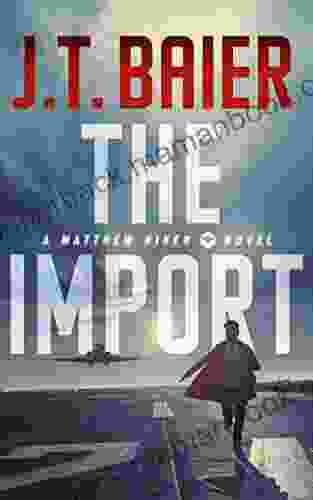Reasons for North American Colonization: A Historical Exploration for 3rd Grade American History


5 out of 5
| Language | : | English |
| File size | : | 388 KB |
| Text-to-Speech | : | Enabled |
| Screen Reader | : | Supported |
| Enhanced typesetting | : | Enabled |
| Word Wise | : | Enabled |
| Print length | : | 7 pages |
| Lending | : | Enabled |
The colonization of North America by European powers in the 16th and 17th centuries was a transformative event that profoundly shaped the history of the continent and its people. Understanding the reasons behind this colonization is essential for students in 3rd grade American history as it helps them grasp the motivations and challenges faced by the early explorers and settlers.
Economic Opportunities
One of the primary reasons for North American colonization was the quest for economic opportunities. European nations were eager to exploit the vast natural resources and fertile lands of the New World. They established colonies to extract valuable resources such as timber, furs, and fish, which were in high demand back home. Additionally, they sought to establish plantations where cash crops like tobacco and cotton could be cultivated for export. The promise of economic gain spurred many Europeans to venture into the unknown.
Religious Freedom
Religious freedom was another significant motivating factor for colonization. In 16th century Europe, religious persecution was rampant. Protestants, who challenged the authority of the Catholic Church, faced discrimination and persecution in many countries. North America offered a haven for those seeking to practice their religion freely. Religious groups, such as the Pilgrims and Puritans, established colonies where they could establish their own religious communities and worship without fear of persecution.
Political Turmoil
Political instability and turmoil in Europe also contributed to colonization. During the 16th and 17th centuries, Europe was embroiled in numerous wars and political conflicts. Some individuals saw colonization as a way to escape the turmoil and seek a more stable and prosperous life in the New World. They believed that establishing colonies could provide them with greater economic and political autonomy.
Land and Resources
The vast expanse of land and untapped resources in North America was a major attraction for European nations. As their populations grew and resources became scarce, they looked to the New World as a potential solution. Colonies could provide ample land for settlement, farming, and the exploitation of valuable resources. The availability of fertile land and natural resources enticed many Europeans to embark on journeys across the Atlantic.
European Exploration
The Age of Exploration, which began in the 15th century, played a crucial role in facilitating North American colonization. European explorers, driven by curiosity and a desire for new knowledge, embarked on daring voyages to chart the vast oceans and discover new lands. Their explorations paved the way for the establishment of colonies and opened up the possibility of transatlantic trade and交流.
The colonization of North America by European powers in the 16th and 17th centuries was a complex historical event driven by a multitude of factors. Economic opportunities, religious freedom, political turmoil, land and resources, and European exploration all played a significant role in shaping the motivations and actions of the early explorers and settlers. Understanding these reasons helps us gain a deeper appreciation for the origins of the United States and the diverse heritage of its people.
5 out of 5
| Language | : | English |
| File size | : | 388 KB |
| Text-to-Speech | : | Enabled |
| Screen Reader | : | Supported |
| Enhanced typesetting | : | Enabled |
| Word Wise | : | Enabled |
| Print length | : | 7 pages |
| Lending | : | Enabled |
Do you want to contribute by writing guest posts on this blog?
Please contact us and send us a resume of previous articles that you have written.
 Top Book
Top Book Novel
Novel Fiction
Fiction Nonfiction
Nonfiction Literature
Literature Paperback
Paperback Hardcover
Hardcover E-book
E-book Audiobook
Audiobook Bestseller
Bestseller Classic
Classic Mystery
Mystery Thriller
Thriller Romance
Romance Fantasy
Fantasy Science Fiction
Science Fiction Biography
Biography Memoir
Memoir Autobiography
Autobiography Poetry
Poetry Drama
Drama Historical Fiction
Historical Fiction Self-help
Self-help Young Adult
Young Adult Childrens Books
Childrens Books Graphic Novel
Graphic Novel Anthology
Anthology Series
Series Encyclopedia
Encyclopedia Reference
Reference Guidebook
Guidebook Textbook
Textbook Workbook
Workbook Journal
Journal Diary
Diary Manuscript
Manuscript Folio
Folio Pulp Fiction
Pulp Fiction Short Stories
Short Stories Fairy Tales
Fairy Tales Fables
Fables Mythology
Mythology Philosophy
Philosophy Religion
Religion Spirituality
Spirituality Essays
Essays Critique
Critique Commentary
Commentary Glossary
Glossary Bibliography
Bibliography Index
Index Table of Contents
Table of Contents Preface
Preface Introduction
Introduction Foreword
Foreword Afterword
Afterword Appendices
Appendices Annotations
Annotations Footnotes
Footnotes Epilogue
Epilogue Prologue
Prologue Fenella J Miller
Fenella J Miller Esphyr Slobodkina
Esphyr Slobodkina Kat Savage
Kat Savage Kate Elizabeth Russell
Kate Elizabeth Russell Renita Burgess
Renita Burgess Steve Niles
Steve Niles Nina Du Thaler
Nina Du Thaler Dave Zeltserman
Dave Zeltserman Georg F L Bausch
Georg F L Bausch Jake Adelstein
Jake Adelstein Marsha Rice
Marsha Rice Chanelle Arterbridge
Chanelle Arterbridge William Havelock
William Havelock Salvatore Stefanelli
Salvatore Stefanelli Nancy Lawson
Nancy Lawson Nada Alachkar
Nada Alachkar Thane Rosenbaum
Thane Rosenbaum Gaston Bachelard
Gaston Bachelard William Alexander Percy
William Alexander Percy James Wolanyk
James Wolanyk
Light bulbAdvertise smarter! Our strategic ad space ensures maximum exposure. Reserve your spot today!

 Chris ColemanDiscover Lucrative Amazon Online Business Ideas: Master Amazon Commission...
Chris ColemanDiscover Lucrative Amazon Online Business Ideas: Master Amazon Commission...
 Hugh BellSecond Hand Smoke: A Literary Masterpiece Exploring the Complexities of Human...
Hugh BellSecond Hand Smoke: A Literary Masterpiece Exploring the Complexities of Human...
 Rex HayesHow to Build Your Own Tiny House: A Step-by-Step Guide to Creating Your Dream...
Rex HayesHow to Build Your Own Tiny House: A Step-by-Step Guide to Creating Your Dream... Griffin MitchellFollow ·13.4k
Griffin MitchellFollow ·13.4k Anton FosterFollow ·16k
Anton FosterFollow ·16k Neil ParkerFollow ·13.9k
Neil ParkerFollow ·13.9k Dwight BlairFollow ·17.9k
Dwight BlairFollow ·17.9k Lucas ReedFollow ·5.4k
Lucas ReedFollow ·5.4k Shaun NelsonFollow ·4.4k
Shaun NelsonFollow ·4.4k James GrayFollow ·12.2k
James GrayFollow ·12.2k Yasunari KawabataFollow ·10.4k
Yasunari KawabataFollow ·10.4k

 Jeremy Mitchell
Jeremy MitchellPlay We Now On Christmas Violin Christmas: A Heartfelt...
Play We Now On...

 Terry Bell
Terry BellTales from the Road: Confessions of an Atlanta Uber...
In the vibrant...

 Ervin Bell
Ervin BellThe French Admiral: A Gripping Naval Adventure with Alan...
In the vast expanse of...

 Henry David Thoreau
Henry David ThoreauCrochet Cozy Afghan Patterns: Crochet Weekend Afghan...
to Crochet...

 Orson Scott Card
Orson Scott CardAn Archaeological View Of The Industrialization Of North...
The industrialization of North America was a...

 Josh Carter
Josh CarterClipboard Christmas Skits by Tom Spence: A Festive...
A Christmas...
5 out of 5
| Language | : | English |
| File size | : | 388 KB |
| Text-to-Speech | : | Enabled |
| Screen Reader | : | Supported |
| Enhanced typesetting | : | Enabled |
| Word Wise | : | Enabled |
| Print length | : | 7 pages |
| Lending | : | Enabled |






